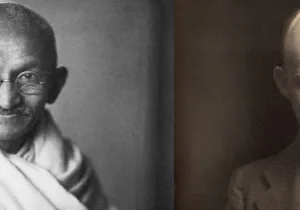About two decades ago, I was browsing in my Dutch university’s library for a book to use in a new IR graduate course on “ethics and international relations.” I came across International Ethics: Concepts, Theories, and Cases in Global Politics, published in 1999 by Mark R. Amstutz. Though I had never heard of this book or its author before, I fairly quickly made International Ethics a mandatory text. The book offered a broad yet clear introduction to ethics, including a convincing defense of the relevance of this discipline to the critical study of international relations. Furthermore, International Ethics proved valuable for students interested in the practice of world politics due to its extensive discussions of morally relevant topics and cases: human rights, the Rwanda genocide, just-war doctrine, the Gulf War, humanitarian intervention, economic sanctions against apartheid, foreign aid, US immigration policy, climate change negotiations, and many more. Moreover, the book has been shown to be pedagogically valuable by equipping readers with essential ethical tools to personally direct issues rather than to accepting pre-cooked or easy answers. Today, the book still accompanies me, in its fifth edition of 2018.
Particularly striking about the text is the Christian realist master key it uses to unlock seemingly impenetrable puzzles of international ethics, something quite unusual in a modern book of its genre. Strangely enough, I started to truly appreciate this only after then-presidential candidate Barack Obama had expressed his love for Reinhold Niebuhr as “one of my favorite philosophers” in a 2007 interview with David Brooks. The “Niebuhr revival,” which this interview evoked, reminded me of a particular passage in International Ethics. Amstutz opens his concluding chapter by quoting Niebuhr’s famous claim that:
“Politics will, to the end of history, be an arena where conscience and power meet, where the ethical and coercive factors of human life will interpenetrate and work out their tentative and uneasy compromises.”
R. Niebuhr, Moral Man and Immoral Society (New York: Charles Scribner’s Sons, 1932), p. 4, quoted in Amstutz, International Ethics, e.g., 1999, p. 197 and 2018, p. 223.
Further on, Amstutz declares his support for Niebuhr’s view on political decision-making:
“This study has sought to defend the Niebuhrian claim by exploring the nature and role of moral values in international relations. The aim has not been to provide ‘moral’ solutions to major international issues. Rather, the goal has been to define concepts, strategies, and ethical traditions that facilitate moral reflection about international relations and to illustrate the role of political morality in global politics with case studies in five major problem areas: human rights, force, intervention, economic sanctions, and global issues.”
M.R. Amstutz, International Ethics: Concepts, Theories, and Cases in Global Politics (Lanham, MD: Rowman & Littlefield, 1999), 198.
Surely Amstutz’s debt to Niebuhr, though somewhat hidden at the end of International Ethics, is one deeply embedded in his work on political ethics as ethics that explicitly considers the role of collective self-interest and power.
To understand Amstutz’s book as a defense of Niebuhr is significant and helps us to see that some of the criticism International Ethics has received – apart from much praise – may well have missed the point. To some readers (including students of mine), the book seems insufficiently theoretical or original in its substantive argumentation, or too American and realist in its outlook. However, that case studies of American policy dominate in the book is quite justifiable. Since the United States, as the world’s most powerful state, arguably carries a greater moral responsibility, every reason exists to ethically scrutinize the motives, means, and consequences of its various actions – in the wake of Niebuhr’s renowned example. Hence Amstutz’s moral-realist assessment of US foreign policies (but also European ones) throughout the book.
Furthermore, as a Niebuhrian, Amstutz is not interested in theory for theory’s sake; he is concerned with the hard task of connecting theory concretely with power and practice in the world as we experience it. The book, then, assumes that it would be utopian to wish away certain practices that may be controversial from an abstract-moral point of view. Rather, as Niebuhr argued in The Irony of American History, they should be ethically analyzed in all their ambiguity or ugliness by all – as Niebuhr sought to make national self-interest and loyalty more “tolerable” by the inclusion of global values. Hence the book’s prudently-ethical discussions of such issues as economic sanctions, irregular war and foreign intervention, but also political reconciliation. Thus, the book persistently calls upon readers as individuals to morally reflect upon the issues. Moreover, like Niebuhr, Amstutz tries to reach a broad contemporary audience. Accordingly, he utilizes a combination of the author’s Christian worldview and an accessible-to-all writing style.
International Ethics is a book that, in Niebuhrian fashion, propagates practical wisdom in world politics and one that therefore highlights moral-political decision-making rather than making theoretical criticisms. For all their theoretical value, poststructuralist or critical IR theories have much less to say about the intricacies and responsibilities of human leadership than a political realism sensible to moral principles yet opposed to moralism. Amstutz’s book has been an essential text for my IR course on ethics and international relations. Yet beyond that, it has stimulated me to seriously explore Reinhold Niebuhr and Christian realism. Thank you, Mark Amstutz.







 Sponsor a student for Christianity & National Security 2024
Sponsor a student for Christianity & National Security 2024